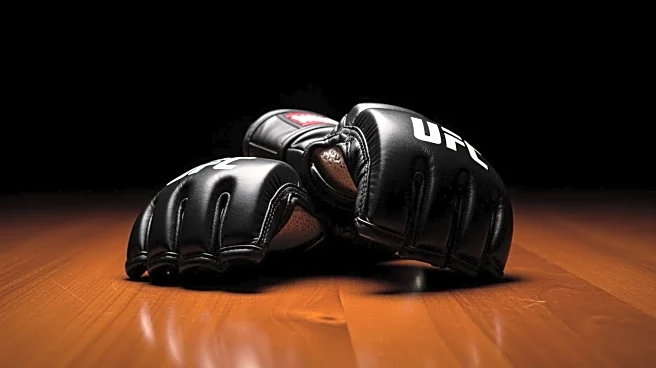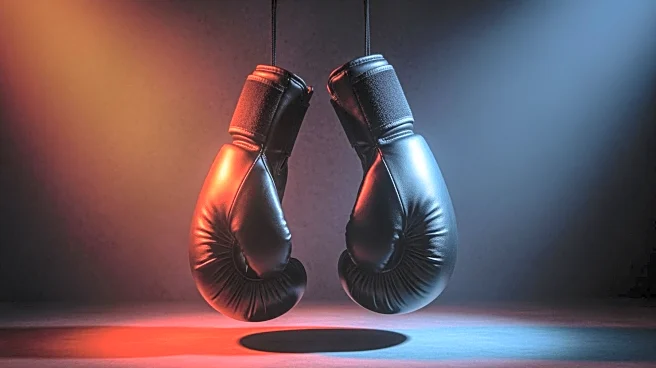What's Happening?
Reinier De Ridder's coach, Harun Ozkan, has publicly addressed the controversial decision to stop the UFC Vancouver main event between De Ridder and Brendan Allen. The decision was made after the fourth round, as De Ridder was struggling to maintain his
footing. Ozkan emphasized that the health and safety of his fighter were his top priorities, stating that he did not want to risk unnecessary damage. This move is unusual in MMA, where fighters are rarely pulled out by their coaches, unlike in boxing. Ozkan took full responsibility for the decision, explaining that it was made to ensure De Ridder's well-being.
Why It's Important?
The decision to stop the fight highlights the ongoing debate about fighter safety in mixed martial arts. While the sport is known for its intensity and physical demands, the health risks associated with prolonged exposure to head trauma are significant. Ozkan's decision underscores the importance of prioritizing fighter health over the desire to win at all costs. This incident may prompt other coaches and regulatory bodies to reconsider the protocols surrounding fighter safety, potentially leading to more protective measures in the sport. The decision also reflects a growing awareness of the long-term health implications for athletes in combat sports.
What's Next?
Following the fight, De Ridder and his team plan to focus on recovery and reassessment before returning to competition next year. This period will allow them to evaluate their strategies and make necessary adjustments. The incident may also lead to discussions within the MMA community about the role of coaches in protecting fighters and the potential need for revised guidelines. Fans and stakeholders will be watching closely to see how this decision impacts De Ridder's career and whether it influences broader changes in the sport.
Beyond the Headlines
This event raises ethical questions about the balance between entertainment and athlete safety in combat sports. The decision by Ozkan could set a precedent for other coaches to prioritize health over competition, potentially leading to a cultural shift in how MMA is approached. It also highlights the human aspect of fighters, who often face immense pressure to perform despite the risks involved. The incident may encourage more open discussions about the responsibilities of coaches and the need for comprehensive support systems for fighters.















